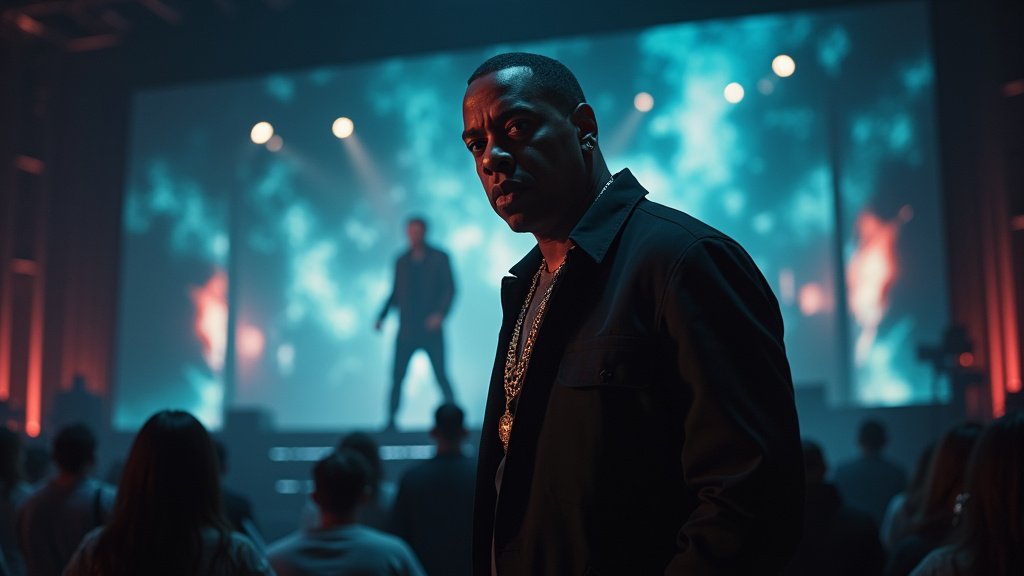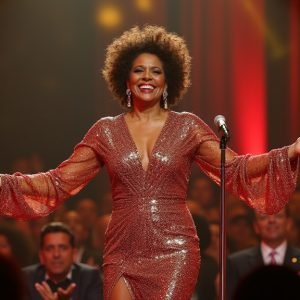The announcement that Puerto Rican superstar Bad Bunny will headline the Super Bowl LX halftime show in February 2026 has ignited a cultural debate, drawing sharp criticism from some conservative circles regarding the Bad Bunny Super Bowl appearance. However, industry mogul Jay-Z has stepped in to defend the decision, dismissing the backlash with a resolute statement about the Bad Bunny Super Bowl choice, highlighting the global music appeal of the artist. This Bad Bunny Super Bowl selection is a testament to his widespread influence, proving the NFL halftime selection can be inclusive.
Bad Bunny’s Historic Halftime Announcement for the Bad Bunny Super Bowl
Bad Bunny, whose real name is Benito Antonio Martínez Ocasio, was officially revealed as the headliner for the Apple Music Super Bowl LX Halftime Show on September 28, 2025. This monumental booking marks a historic moment, as he will be the first solo Latin artist to headline the prestigious event, showcasing a significant Bad Bunny Super Bowl milestone. In a statement following the announcement, Bad Bunny emphasized the significance of the performance, stating, “What I’m feeling goes beyond myself. It’s for those who came before me and ran countless yards so I could come in and score a touchdown… this is for my people, my culture, and our history”. This historic Bad Bunny Super Bowl moment is a testament to his global music appeal.
The Bad Bunny Super Bowl Controversy Ignites
The selection quickly drew fire from conservative commentators and political figures, including former President Donald Trump, who claimed he had never heard of the artist. Critics have questioned Bad Bunny’s headlining role for the Bad Bunny Super Bowl, citing his primary use of Spanish in his music, his outspoken political stances, and his advocacy for LGBTQ+ rights as reasons why he might not represent “American culture” or be “family-friendly”. A petition on Change.org emerged, calling for country music legend George Strait to replace Bad Bunny, arguing that Strait embodies “the heart and soul of American music” and that the halftime show should “honor American culture”. The petition garnered tens of thousands of signatures, highlighting a vocal segment of opposition to the Bad Bunny Super Bowl booking, contributing to a significant cultural debate music faces. This Bad Bunny controversy highlights differing views on representation.
NFL and Roc Nation Stand Firm on the Bad Bunny Super Bowl
Despite the rising controversy surrounding the Bad Bunny Super Bowl, NFL Commissioner Roger Goodell has publicly defended the choice. Goodell stated that the decision was “carefully thought through” and acknowledged that backlash is common for halftime show selections. He praised Bad Bunny as “one of the leading and most popular entertainers in the world” and expressed confidence that the performance would be an “exciting and united moment” for the Bad Bunny Super Bowl. This decision is a testament to the NFL halftime selection process, prioritizing global music appeal.
Jay-Z, whose Roc Nation is a key partner in producing the Super Bowl halftime show, also weighed in on the Bad Bunny Super Bowl controversy. When approached by TMZ, he offered a succinct defense of Bad Bunny, stating, “They love him. Don’t let them fool you”. Jay-Z’s Roc Nation has been instrumental in shaping the Super Bowl halftime entertainment since 2019, consistently selecting artists with significant cultural impact, including this latest NFL halftime selection. The Jay-Z defends Bad Bunny‘s booking, underscoring the artist’s massive fanbase and the significance of the Bad Bunny Super Bowl.
Bad Bunny’s Cultural Impact and Achievements
Bad Bunny’s selection for the Bad Bunny Super Bowl comes at a peak in his illustrious career. Recently, he was honored with the prestigious Top Latin Artist of the 21st Century award at the 2025 Billboard Latin Music Awards, presented by Hollywood icon Rita Moreno. This recognition underscores his unprecedented dominance and influence in global music over the past two decades, solidifying his status as a record-breaking artist with immense streaming numbers and a devoted international fanbase. His success challenges traditional notions of mainstream appeal, proving that global superstardom can be achieved while proudly representing one’s latin heritage and performing in Spanish, contributing to a rich cultural debate music faces today. This Bad Bunny Super Bowl appearance is a logical next step for a true global phenomenon.
The Broader Implications of the Bad Bunny Super Bowl
The debate surrounding the Bad Bunny Super Bowl halftime performance reflects a broader cultural conversation in America, with polls indicating a significant political divide in public opinion. While some critics view his selection as a political statement or a departure from traditional American entertainment, supporters see it as a celebration of diversity and a reflection of the evolving landscape of popular music. The Super Bowl halftime show, a platform watched by hundreds of millions, is increasingly becoming a stage for cultural statements and representation, adding another layer to the Super Bowl controversy and the ongoing Bad Bunny defense. The Bad Bunny Super Bowl is more than just a concert; it’s a cultural moment.
Conclusion on the Bad Bunny Super Bowl
As the NFL and its production partners, including Jay-Z’s Roc Nation, stand firm in their decision, the Bad Bunny Super Bowl LX halftime show is poised to be a significant cultural moment. While criticism persists, the league’s commitment to Bad Bunny suggests a focus on global appeal and cultural relevance, defying any potential political backlash music might face. The performance is expected to be a powerful showcase of latin artistry, offering a potentially unifying spectacle that celebrates music’s ability to transcend borders and languages, solidifying his place as a pioneering Latin artist Super Bowl history. The Bad Bunny Super Bowl will undoubtedly be a landmark event, a true testament to his global music appeal.

























